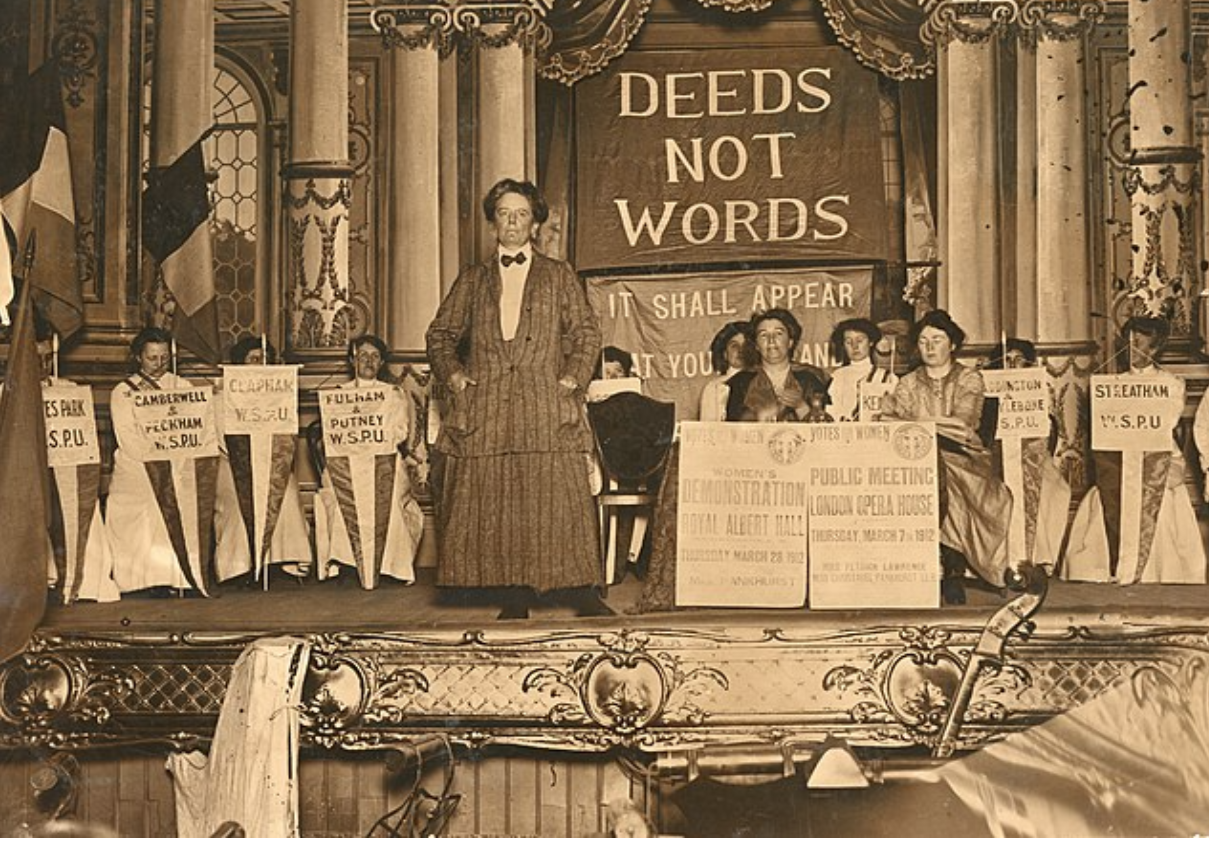Democracies would be better off without political parties. Discuss.
My favourite colour isn’t red, nor is it blue. My favourite colour is the vibrant green of the leaves on trees in our parks, centuries old. My favourite colour is the rosy pink that blushes a young child’s face at the sight of the Christmas decorations that adorn our town every December 3rd. My favourite colour isn’t blue, nor is it red. Why must I pick? Would the leaves be greener if I were to pick red, or would the Christmas lights sparkle a little longer? Charles R Adrian¹ suggested that there’s no left or right-wing way to democratically run a town, or local council. The running of a successful local council should not be a political triumph. Does emptying bins, or filling potholes really require a political agenda? This raises the question of why we operate under a partisan democracy, and whether we ought to.
However, the ability to simply pick a party affiliation, a colour, undeniably makes voting accessible. Political parties are necessary in order to mobilise voters, they make long term goals clear and easy to identify. Without this politics would risk becoming elitist, exclusively suited to the highly educated, those with infinite spare time, and undoubtedly not suited to the working parent of a busy family who is only able to nip out for 10 minutes to select the party candidate who best represents their beliefs. What if instead of this simple task we instead had to decide which candidate best conveyed our desires, out of what could be hundreds in a no-nomination system. Then we would then have to research our chosen candidate. What are their policies? What will they do for us? What has this candidate voted for previously? This Would be both time-consuming and potentially dangerous. Lee Drutman² wrote that without what he referred to as ‘healthy political parties’, we would risk falling into authoritarian states, dominated by tyrannical leaders with no real political ideology beyond their own power. Whilst he acknowledged the fact that our political parties don’t always operate ‘healthily’, he suggests that this is no reason to scrap them all together and instead we should focus on rehabilitating broken parties and expanding their reach to avoid misrepresentation.
Political parties have allowed us to completely polarise the political scene. This is particularly prevalent in US politics. With each passing election the divide only seems to grow, as does the resentment between the opposing parties. In 2016 the Trump Campaign sold $80,000 worth of MAGA hats³ every single day – enough to almost entirely cover the costs of the campaign. The commodification of a political campaign on this scale had never been seen until 2016. Arguably this marked a turning point in the role of political parties in the 21st century, and undoubtedly forces us to question both their role and legitimacy. Trump, the Republicans, were able to win 46 electoral votes from previously split states Michigan, Pennsylvania and Wisconsin, for the first time since 1998⁴. It is undeniable that Trump’s campaign was successful, but was it a success for the political scene in America? Citizens began to identify with this party and politician no matter what, for they were sold an item, a sense of white validation, not a true political ideology. Perhaps this is when it becomes a problem, for whilst voters are mobilised, do they truly understand what they’re voting for? Or have they instead become the victim of an unethical marketing campaign? This is a phenomenon which can only be accredited to the existence of such divisive political parties, which have become prone to being run more so as businesses than vessels of political activism. This has led people to become overly proud of their political leaning, and frequently defensive of it as part of their own identity. We cannot justify treating politics as though it truly is a vote on our favourite colour, for the policy we vote for will have a widespread impact, and has the potential to influence lives, not just decide what colour to paint the fences in the park.
Scientists estimate there are over 10 million colours that humans can see with their naked eye. 67 million people live in the UK. Yet there are only 650 seats in the House of Commons. We live in an increasingly diverse society, and political parties unify the population, regardless of race, gender, age, or language. So many variables influence how each individual decides to vote, and yet in the UK we are able to categorise these opinions into 4, arguably 2, main political parties. Despite Politics generally being considered a divisive topic, not to be brought up over dinner, or in new company, the reality is we have been able to successfully unite people who in other regards have very little in common. Both the busy working parent, who dashed out to vote early in the morning, and the student working towards a PhD in political science may well end up casting the same vote. Our political system forces people to acknowledge wider issues, not just their own and therefore vote in the interest of the whole country, not just for one policy which directly aligns with their desires for the local area⁵. We don’t pick our favourite colour, we pick the colour palette which contains the colours we like best, this isn’t a bad thing; it forces us to compromise and stand in solidarity with one another.
My favourite colour still isn’t red, nor is it blue. My favourite colour is unique and influenced by my past experiences, but I know that under partisan democracy the hue of my colour will stain and have real impact. I believe that whilst not always perfect, political parties are a necessary element of 21st century democracy and without them we would struggle hugely to run harmonious and fair countries, and democracies would not be better off without them.
¹Adrian, C.R. (1952)
²Drutman, L. (2023)
³Shoaib, A. (2023)
⁴Shaw, D. (2016)
⁵Singh, S.C. (1950)
by Emma Evans, Allestree Woodlands School
Bibliography
Adrian, C.R. (1952) ‘Some general characteristics of nonpartisan elections’, American Political Science Review, 46(3), pp. 766–776. doi:10.2307/1952283.
Drutman, L. (2023) ‘The Case for Political Parties: Why Modern Mass Democracy Needs Political Parties and Can’t Operate without Them’, New America [Preprint].
Shaw, D. (2016) ‘Assessing the impact of campaigning in the 2016 U.S. presidential election’, Zeitschrift für Politikberatung, 8(1), pp. 15–23. doi:10.5771/1865-4789-2016-1-15.
Shoaib, A. (2023) ‘Trump campaign made $80,000 a day selling MAGA hats, according to Jared Kushner’s new memoir’, Business Insider India, 30 July.
Singh, S.C. (1950) ‘ROLE OF POLITICAL PARTIES’, Indian Political Science Association, 11(2), pp. 20–29.





